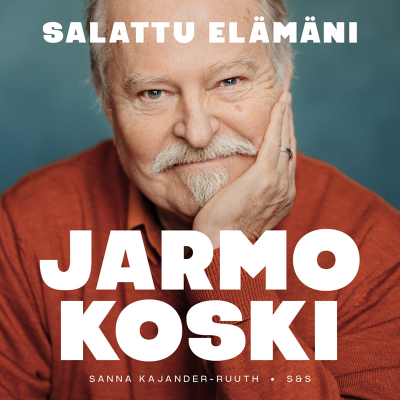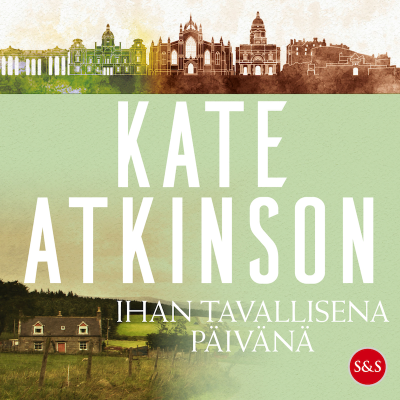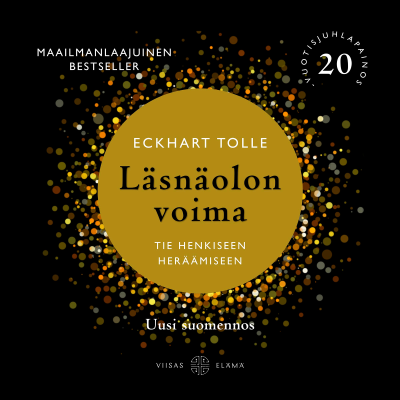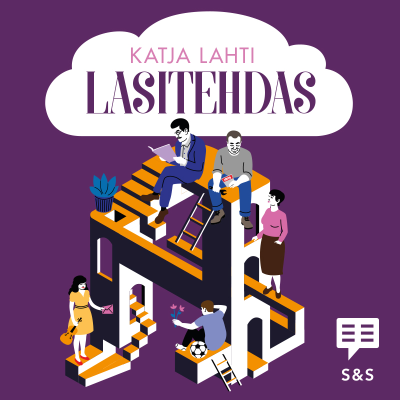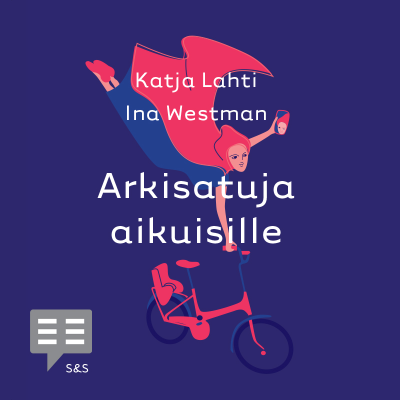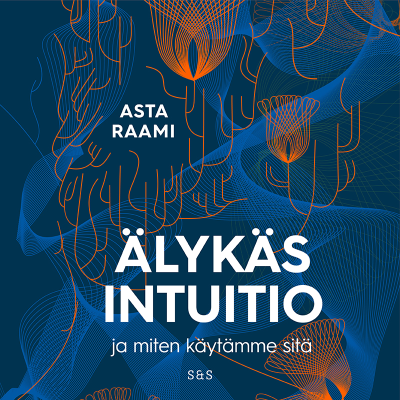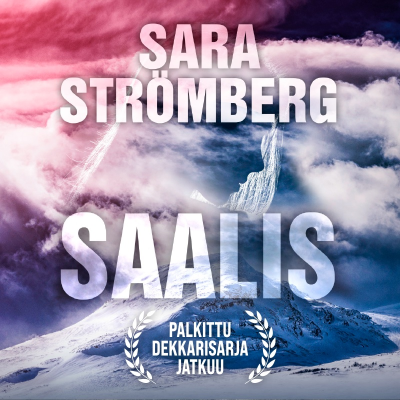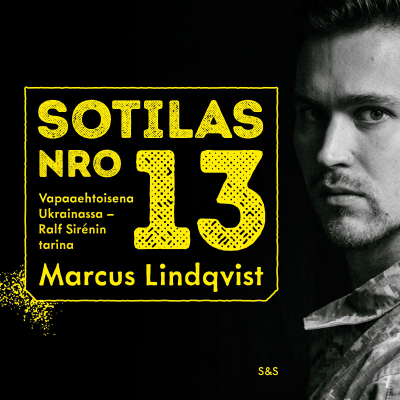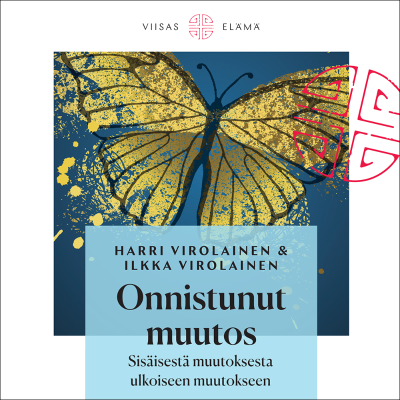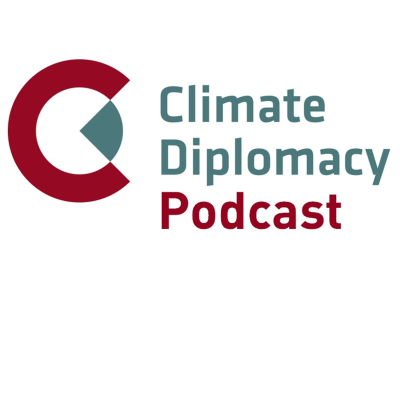
Climate Diplomacy Podcast
englanti
Rajoitettu tarjous
2 kuukautta hintaan 1 €
Sitten 7,99 € / kuukausiPeru milloin tahansa.
- Podimon podcastit
- Lataa offline-käyttöön
Lisää Climate Diplomacy Podcast
The Climate Diplomacy Podcast gives insights into the latest developments in international climate diplomacy and security. Our host Alexandra Steinkraus interviews experts and practitioners on their take on climate foreign policy, climate-related impacts to security, and promoting peace and resilience in a changing climate. Together we look into climate-fragility, migration, food insecurity, gender dynamics and much more, not to mention our deep dive into countries and regions. For more information, please visit climate-diplomacy.org or follow @climatediplo.bsky.social on Bluesky and Climate Diplomacy and Security on LinkedIn.
Kaikki jaksot
54 jaksotEpisode 54: Truth under threat: How climate disinformation fuels insecurity
For the last episode of 2025, we're joined by Jonah Thompson, EU Policy Manager at the Center for Countering Digital Hate, who also works on EU policy at Climate Action Against Disinformation (CAAD). Together, we explore the connection between climate disinformation and security—and how it undermines crisis response, erodes trust and fuels security risks in today's geopolitical climate. Tune in as we unpack the threat landscape, the platform mechanics that amplify harmful narratives, recent examples where misinformation outpaced emergency communications and how climate disinformation attempts to weaken institutions like NATO and the EU. Further reading: Extreme weather: How a storm of false and misleading claims about extreme weather events spread unchecked on social media putting lives as risk [https://counterhate.com/research/extreme-weather-false-claims/] (report) The new climate denial: How social media platforms and content producers profit by spreading new forms of climate denial [https://counterhate.com/research/new-climate-denial/](report) Climate action against disinformation [https://caad.info/](coalition website) Watch the BCSC 2025 session on climate security and disinformation [https://youtu.be/3Unvb6vZBNE?si=rHMm3WCdzXEBbcv2] (video) © adelphi global, all rights reserved adelphi global (https://adelphi-global.de/en) [https://adelphi-global.de/en)] is an economically and politically independent, non-profit organisation dedicated to promoting sustainability, enhancing environmental protection, improving education, expanding development cooperation, and strengthening international collaborations. Our commitment is reflected in targeted projects, in-depth analyses, and informative educational events, through which we strive for a just and sustainable world. Editing by Paulus Müller-Hahl (Lichtbilder)
Episode 53: Women, Peace and Security agenda at 25: How can gender-responsive climate action be a pathway to sustainable peace?
Marking 25 years of the Women, Peace and Security (WPS) agenda, in collaboration with UN Women, this episode explores how gender-responsive climate action can pave the way to sustainable peace. We are joined by Norul Rashid and Japhet William Graham Eichel from UN Women’s Regional Office for Asia and the Pacific, who share insights from across the region and beyond. Together, they examine how climate impacts intersect with gender norms and security challenges, and why women’s leadership is vital in building resilience. The discussion highlights grassroots initiatives, such as youth-led climate action in Pakistan and women’s mediation efforts in the Pacific and Afghanistan, exploring both the barriers and transformative potential of women’s participation. Listeners will gain a deeper understanding of how the four pillars of the WPS agenda—participation, protection, prevention, and relief and recovery—can address the inseparable challenges of peace and climate resilience. Further reading: * Weathering Two Storms: Gender and Climate in Peace and Security [https://peacemaker.un.org/en/documents/weathering-two-storms-gender-and-climate-peace-and-security] * Gender Responsive Climate Security Assessment for Sri Lanka [https://weatheringrisk.org/en/publication/gender-responsive-climate-security-assessment-sri-lanka] * Disasters, crises and violence against women: Evidence from big data analysis [https://data.unwomen.org/publications/disasters-crises-and-violence-against-women-evidence-big-data-analysis] © adelphi global, all rights reserved adelphi global (https://adelphi-global.de/en) [https://adelphi-global.de/en)] is an economically and politically independent, non-profit organisation dedicated to promoting sustainability, enhancing environmental protection, improving education, expanding development cooperation, and strengthening international collaborations. Our commitment is reflected in targeted projects, in-depth analyses, and informative educational events, through which we strive for a just and sustainable world. Editing by Paulus Müller-Hahl (Lichtbilder)
Episode 52: 100 days until COP30: Brazil on climate, environment and human security
In this episode, we explore the critical intersection of climate, environment, and human security in Brazil with Laís Clemente, Analyst in adelphi’s Climate Diplomacy and Security team. As Brazil prepares to host COP30, Laís unpacks the country’s most pressing climate and environmental challenges, from land and water conflicts to environmental crime and extreme weather, and discusses how Brazil’s unique ecosystems like the Amazon and Cerrado shape both risks and opportunities. We examine the strengths and gaps in Brazil’s policy responses, the importance of empowering local and traditional communities, and the country’s evolving leadership role in global climate diplomacy. Further reading: Report: Climate, environment and human security in Brazil: Response landscape and leadership opportunities [https://climate-diplomacy.org/magazine/environment/climate-environment-and-human-security-brazil-response-landscape-and]
Episode 51: Current affairs: Water diplomacy and climate finance in South and Central Asia
In this episode we're joined by Assem Mayar, independent researcher and Climate Security Expert Network member, specialising in climate change, transboundary water management and environmental security. Assem shares insights on challenges and opportunities in Central Asia and Afghanistan, possible solutions in regional initiatives, decentralised finance and innovative funding mechanisms, as well as what the suspension of the Indus Water Treaty means for wider the region going forward. Further resources: Policy Brief No. 221: Afghanistan's Climate Crisis: A Call for Decentralised and Inclusive Finance [https://toda.org/policy-briefs-and-resources/policy-briefs/afghanistans-climate-crisis-a-call-for-decentralised-and-inclusive-finance.html] | The Economic Consequences of Climate Change for Afghanistan: Losses, projections... and pathways to mitigation [https://www.afghanistan-analysts.org/en/wp-content/uploads/sites/2/2025/03/20250317-Climate-Economy-FINAL.pdf] | Left Behind: Why Afghanistan Cannot Tackle Climate Change Alone [https://toda.org/global-outlook/2025/left-behind-why-afghanistan-cannot-tackle-climate-change-alone.html] | The Indus Water Treaty Suspension: A Wake-Up Call for Asia-Pacific Unity? [https://toda.org/global-outlook/2025/the-indus-water-treaty-suspension-a-wake-up-call-for-asiapacific-unity.html] © adelphi global, all rights reserved adelphi global (https://adelphi-global.de/en) [https://adelphi-global.de/en)] is an economically and politically independent, non-profit organisation dedicated to promoting sustainability, enhancing environmental protection, improving education, expanding development cooperation, and strengthening international collaborations. Our commitment is reflected in targeted projects, in-depth analyses, and informative educational events, through which we strive for a just and sustainable world. Editing by Paulus Müller-Hahl (Lichtbilder)
Episode 50: Around the world in 50 episodes
This month, hosts Alexandra and Raquel celebrate the 50th episode by looking back continent by continent at the countries and regions that have been covered since 2019 on the podcast. From Kazakhstan to Mali to the Caribbean, guests have echoed the need for intersectional and inclusive research and programming, more and better climate finance in fragile and conflict-affected areas and the importance of local expertise and initiatives. Thank you for tuning in month after month over the last 50 episodes! Recommended resources: * Climate Security Expert Network [https://climate-diplomacy.org/climate-security-expert-network] © adelphi global, all rights reserved adelphi global (https://adelphi-global.de/en [https://adelphi-global.de/en]) is an economically and politically independent, non-profit organization dedicated to promoting sustainability, enhancing environmental protection, improving education, expanding development cooperation, and strengthening international collaborations. Our commitment is reflected in targeted projects, in-depth analyses, and informative educational events, through which we strive for a just and sustainable world. Editing by Paulus Müller-Hahl (Lichtbilder).
Valitse tilauksesi
Rajoitettu tarjous
Premium
Podimon podcastit
Lataa offline-käyttöön
Peru milloin tahansa
2 kuukautta hintaan 1 €
Sitten 7,99 € / kuukausi
Premium
20 tuntia äänikirjoja
Podimon podcastit
Lataa offline-käyttöön
Peru milloin tahansa
30 vrk ilmainen kokeilu
Sitten 9,99 € / kuukausi
Premium
100 tuntia äänikirjoja
Podimon podcastit
Lataa offline-käyttöön
Peru milloin tahansa
30 vrk ilmainen kokeilu
Sitten 19,99 € / kuukausi
2 kuukautta hintaan 1 €. Sitten 7,99 € / kuukausi. Peru milloin tahansa.










